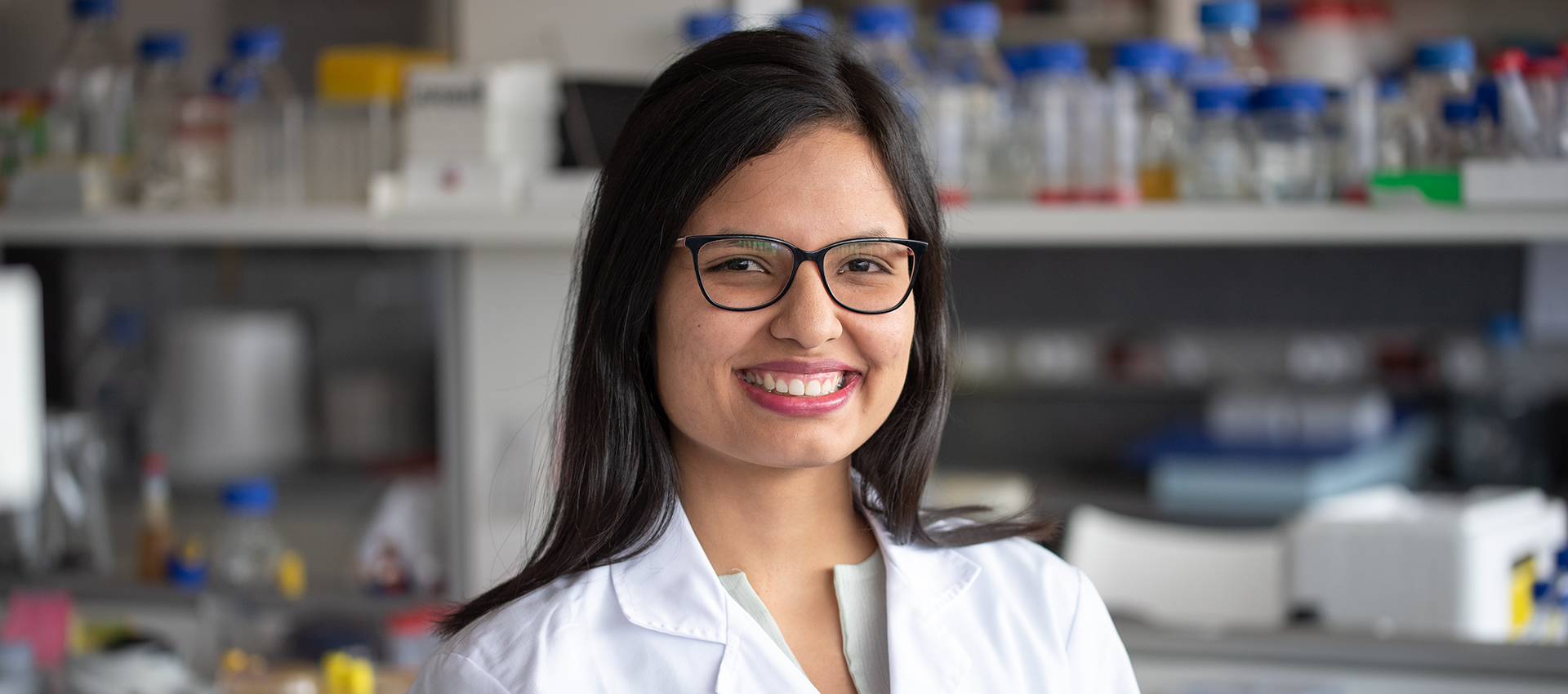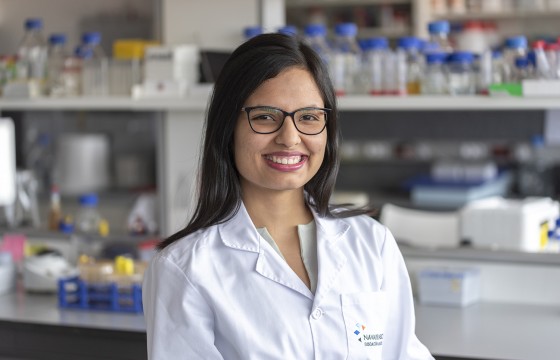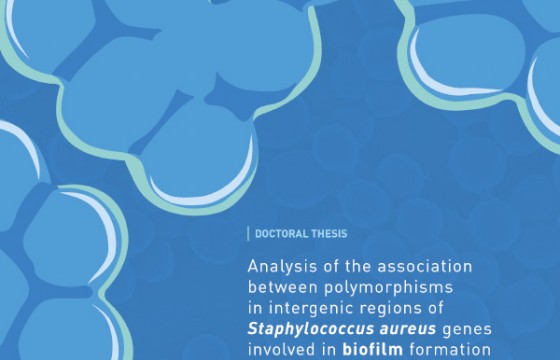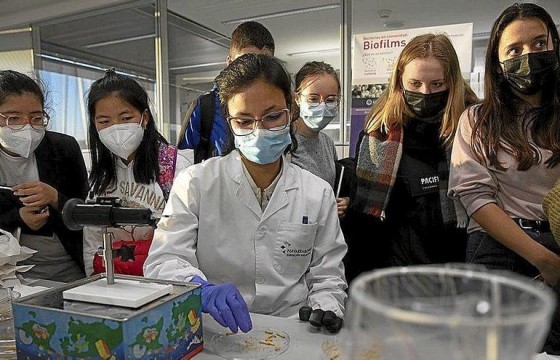
Liliana Andrea Morales's thesis investigates one of the bacteria that causes infections in orthopaedic prostheses most frequently
- The PhD student has developed her research at Navarrabiomed thanks to an Iberus Talent grant from UPNA and the European Union.
The ability to adhere and create biofilm (a protective film that makes it more resistant) of the bacteria “staphylococcus aureus”, one of those that most often causes infections in orthopaedic prostheses, is the research object of the doctoral thesis of Liliana Andrea Morales Laverde, recently presented at the Public University of Navarra (UPNA). The research has been carried out in the Microbial Pathogenesis Unit of Navarrabiomed-IdiSNA under the direction of Iñigo Lasa Uzcudun, principal investigator of the Microbial Pathogenesis Unit, and Dr. Cristina Solano Goñi, researcher of the same unit.
As the new UPNA doctor explains, there are many elements in the staphylococcus aureus genome that may contribute to its ability to create infections, such as the presence or absence of certain genes or variations in the coding sequence or in intergenic regions. However, “the contribution of the latter has remained, in part, unexplored," she says. Precisely, during her doctoral thesis, Liliana Andrea Morales focused on analysing the role of these variations in genes important for the initial adhesion and subsequent biofilm formation of the bacteria.
For the development of the thesis, Liliana Andrea Morales has had a predoctoral fellowship under the IberusTalent
programme of Campus Iberus, co-financed by the European Union as part of the Marie Sklodowska‐Curie Actions H2020 and the Public University of Navarra. Research has further received funding through the calls for Aid to R&D&i projects 2017 of the Ministry of Economy, Industry and Competitiveness and Aid to R&D&i projects 2020 of the Ministry of Science and Innovation, granted to the projects:
The role of intergenic variations
As the new doctor from the UPNA explains, the results of the thesis “show that changes in intergenic regions are a source of variability between clinical isolates and contribute to different levels of expression of these elements associated with the pathogenesis of the bacterium”. Bacteria that are extracted (isolated) from an infection for further study are known as “clinical isolates”.
In her research, Liliana Morales developed a methodology to simultaneously identify and quantify different strains of staphylococcus aureus in a mouse coinfection model. “This methodology made it possible to identify significant differences in the adhesion and colonisation capacity of the isolates,” she says. “In the future, this methodology could be useful in identifying competitive advantages between closely related clinical isolates,” she concludes.
The studies were carried out in collaboration with Dr. Margarita Trobos and the Department of Biomaterials of the University of Gothenburg (Sweden), where Liliana Morales carried out a research stay.
Brief CV of the researcher
Liliana Morales studied her degree in Microbiology and Bioanalysis at the Industrial University of Santander (Colombia), where her interest in research began. Subsequently, through the Ibero-American Postgraduate University Association (AUIP) and the Early Stage Researchers programme (ESRs), IberusTalent, Liliana studied her Master's degree at the University of La Rioja and her doctoral studies with international honours at UPNA, respectively. During her training, Liliana Morales has specialised in the areas of Microbiology and Molecular Engineering focused mainly in the area of Health.




